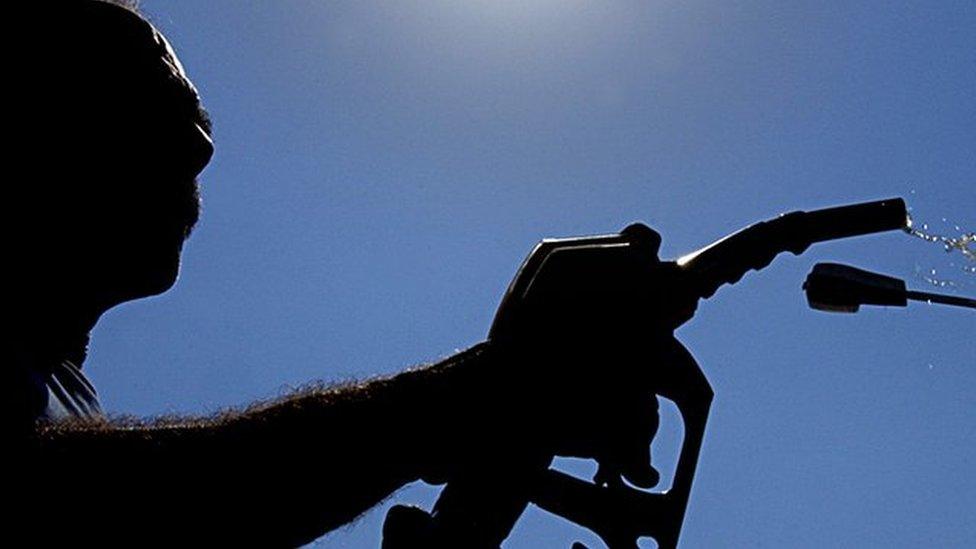Diesel cars: Why are sales falling?
- Published
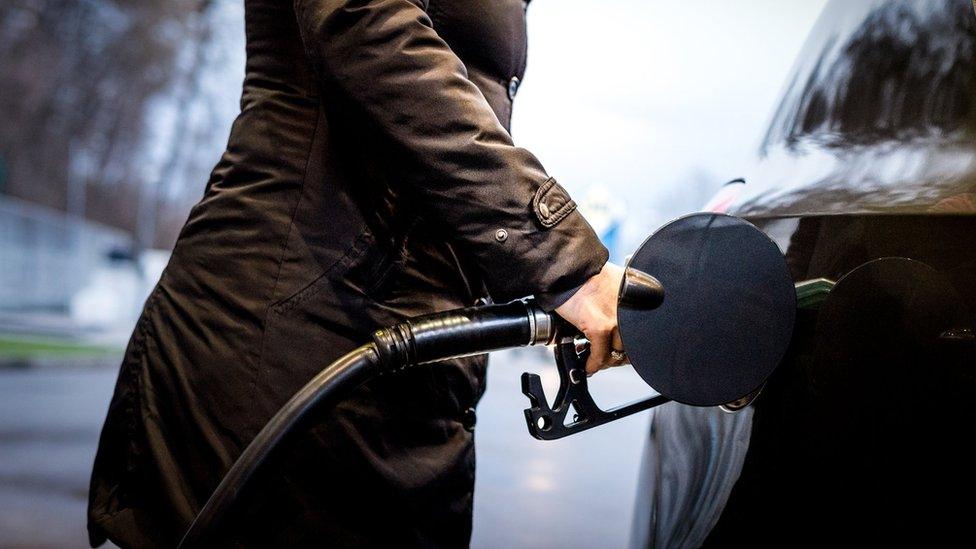
Diesel car sales fell by 37% this March compared with March 2017, according to the latest figures from the industry body the Society of Motor Manufacturers and Traders (SMMT)., external
This was the latest in a series of falls in new diesel car sales. In 2017, demand for new diesel cars plunged by 17%.
With diesel car sales dropping and updates to taxes for older diesel vehicles coming into force in April, BBC News answers the top five questions about diesel.
1. How big is the diesel downturn?
According to the SMMT, 153,594 new diesel cars were registered in March 2018, down from 244,593 a year before.
The SMMT pointed out that March 2017 was a record month for new car registrations, as customers bought new cars before changes in Vehicle Excise Duty were introduced.
Diesel car sales made up 32.4% of the total car market in 2018, compared with 43.5% in March 2017.
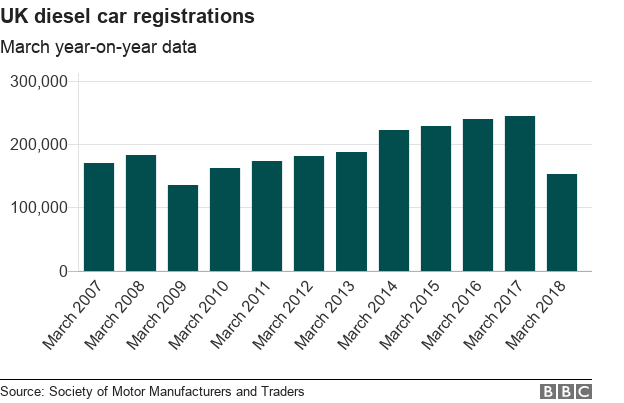
The number of new diesel car registrations last dipped below 200,000 in March 2013 - when a total of 187,239 new diesel vehicles were registered.
Overall, the UK new car market shrank by 15.7% last month, in comparison with March 2017.
2. Why is the demand for diesel cars falling?
A study by Aston University predicts that we will continue to see a fall in diesel car sales this year.
Prof David Bailey has said that fewer diesel cars are being driven off the forecourts because of "environmental pressures and consumer confusion".
The SMMT also says that consumer confidence has been hit. In the UK, as politicians have become more focused on air quality, potential customers have become more worried about restrictions on diesel cars.
The Volkswagen scandal showed that many diesel cars were producing higher levels of nitrogen oxides, NOx, on the road, than in laboratory tests.

NOx is a significant contributor to pollution in cities and can cause respiratory diseases, making diesel cars a target of clean air campaigners such as Greenpeace, external.
Higher taxes on diesel vehicles might have hit demand too.
In the November Budget, the government announced a new levy on new diesel vehicles that failed to meet the latest emissions standards. The first-year road tax increase for diesel cars came into effect at the start of this month and will apply until around 2021.
3. Has the government changed the rules on diesel?
The government had previously introduced tax breaks on diesel cars when Gordon Brown was chancellor.
But, with an increased focus on air quality in urban areas and on NOx as a contributor to pollution in cities, diesel is facing a backlash.
In addition to the tax rise on new diesel vehicles, the government has said, external that sales of all new diesel and petrol cars and vans would be banned by 2040 (although hybrid cars will be exempt).
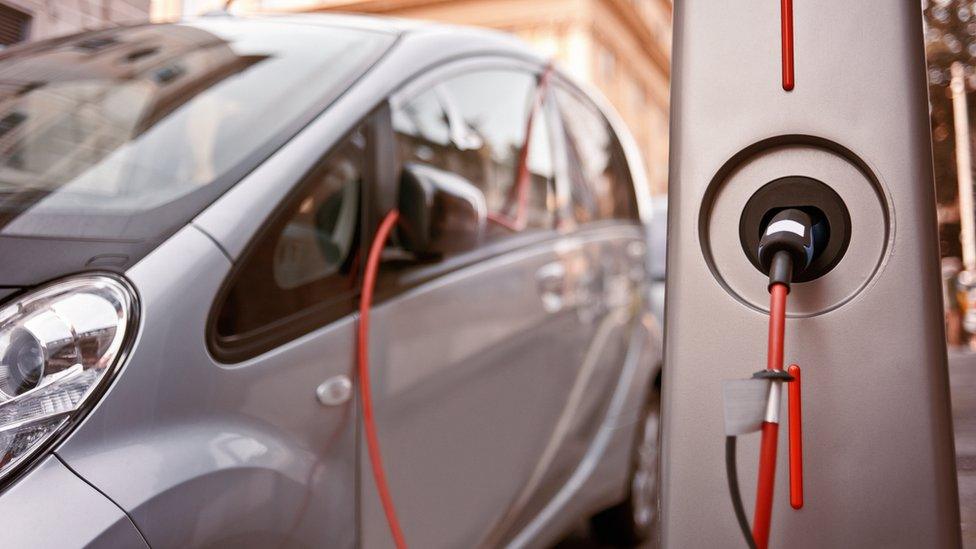
Experts had urged the government to set up a scrappage scheme to encourage drivers to ditch diesel and buy electric cars instead.
But, the Department for Environment, Food & Rural Affairs, external ruled that out in March, saying that a national scrappage scheme might disrupt the car market and be difficult to deliver.
4. Are diesel cars really bad for the environment?
Diesel was promoted as more environmentally-friendly than petrol as part of the EU's efforts, external to reduce greenhouse gas emissions, and carbon dioxide (CO2) in particular.
While diesel fuel contains slightly more carbon, overall CO2 emissions, external of the average diesel car are lower.
But, diesel car emissions have also sparked concerns around public health.
Diesel engines generally produce higher levels of NOx and of particulates - tiny pieces of soot that can enter the lungs.
The SMMT, external points out that since 2011, new diesel cars have been fitted with filters that clean up most of these particles.
The industry body also says that the European emissions standard, Euro 6, sets limits on how much NOx can be produced.
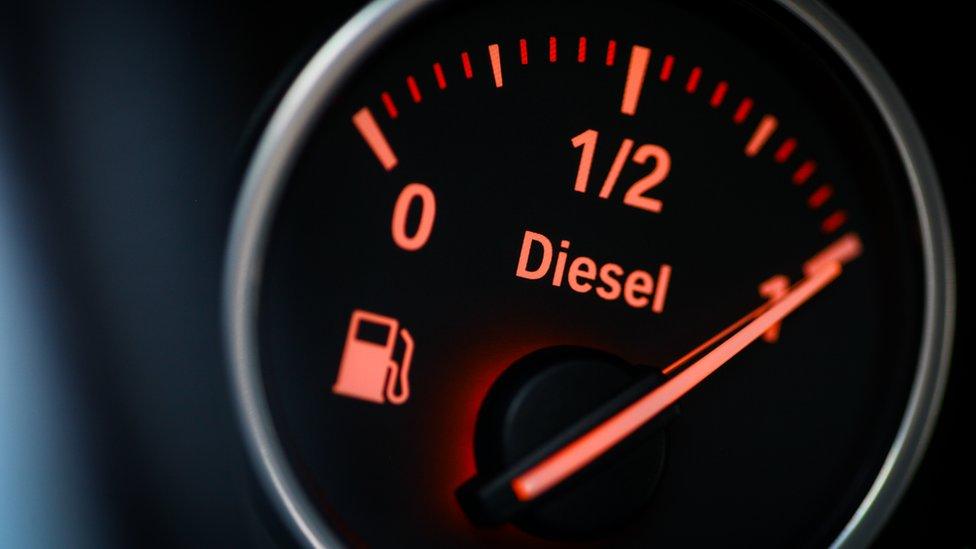
5. What are other countries doing about diesel?
In February, a German court ruled that cities which breach EU air quality limits can ban some older, more polluting, diesel cars if they want to.
This is a ruling the car industry wanted to avoid.
It could also raise the prospect that some cities could face legal action from the national environmental lobby for refusing to introduce bans.
In 2017, around 70 German cities failed to meet EU emissions standards.
The mayor of Paris has also announced wide-ranging measures to cut urban pollution.
They include banning all petrol and diesel-fuelled cars from the city centre by 2020, as well as offering grants for buying bikes or travel cards to those who give up their cars.
London will introduce an ultra low emission zone, external in April 2019.
It will mean drivers having to pay a daily charge when travelling in central London, if their vehicles don't meet the latest emission standards.
- Published5 April 2018

- Published9 January 2018
